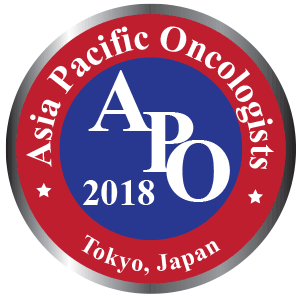
Juan Pablo Marquez
Sonora Cancer Research Centre, USA
Title: Multi-peptide immunotherapy in combination with immunogenic chemotherapy in refractory cancer patients
Biography
Biography: Juan Pablo Marquez
Abstract
Background: Despite the recent understanding that refractory cancer is immunogenic and the level of tumor infiltrating T-cells identified is associated with disease outcome; few studies evaluate the multi peptide immunotherapy of the refractory disease. Antigen-specific active immunotherapy targeting refractory cancer is limited and focus on only a few antigens clinically irrelevant antigens. Overexpression of self-proteins that are involved in cancer proliferation has been shown to be a mechanism by which self-proteins become immunogenic. We questioned whether overexpressed proteins that are found in high incidence in several refractory malignancies and associated with poor prognosis could be refractory tumor clinically relevant targets to develop multi peptide immunotherapies in combination with other approaches such as immunogenic chemotherapy. We questioned whether multi peptide immunotherapy targeting twenty antigens could be an approach to the development of refractory cancer immunotherapy in patients with good ECOG despite their prognosis.
Methods: Forty proteins overexpressed in refractory cancer and associated with these clinical conditions were identified. Indirect ELISA was used to evaluate antibody immunity directed against these proteins in 25 refractory cancer patients and 100 age-matched controls. Web-based algorithms were used to identify long peptides including both Class I and Class II binding epitopes derived from the native protein sequences. Peptide reactivity was assessed using Granzyme B ELISPOT. Peptides that were highly immunogenic by ELISA and ELISPOT were formulated into multi-peptide immunotherapy and patients were enrolled in a pilot clinical trial approved by the local ethic committee. 25 patients were treated with intradermal peptide injections in 8 times in the area of the axillary and inguinal lymph nodes and afterwards we administered the peptides in the areas with tumor activity according with the CT scans along with doxorubicin and oxaliplatin as immunogenic chemotherapy after dose-response of both drugs was tested in vitro using autologous PBMC’s and the patients were monitored for the development of Th1 and CD8 immune response and clinical response. At specific time points, subjects were evaluated clinically by CT scans. Tumor sections from the original surgery were stained for CD8 and Th1 positive cells by immunohistochemistry. CD8 T-cell and Th1 quantitation was based on the mean of three 40X fields per section.
Results: Bcl-2, RCAS1, VCP, FAP, Survivin, fascin, EGFR and Ape-1 are immunogenic in refractory cancer patients. Serum IgG + IgM + IgA responses for all the peptides derived from the mentioned proteins were significantly elevated in refractory cancer patients sera when compared to donor controls (Bcl-2 p=0.0001, RCAS1 p=0.0001, VCP p= 0.005, FAP = 0.0001, survivin 0.003, fascin p= 0.001, EGFR p=0.005 and Ape-1 p=0.0001). ELISPOT screening yielded epitopes that were immunogenic in refractory cancer. Tumors were significantly inhibited after the treatment with the combination of the multipeptide antigen specific active immunotherapy and immunogenic chemotherapy with significantly increased in tumor infiltrating CD8 T-cells and Th1 cells and decreased Foxp3 positive cells.
Discussion: Refractory cancer is immunogenic and overexpressed proteins involved in important clinically relevant pathways could serve as immunotherapy immunogens in refractory cancer with ECOG 0-1. Active multi peptide immunotherapy against refractory cancer antigens can destroy tumors and inhibit new tumor growth refractory cancer patients including sarcoma n=10, ovarian cancer n=8, triple negative breast cancer n=5 and PDAC n=2. Multi peptide immunotherapy and immunogenic chemotherapy was associated with no adverse events in the treated patients and could significantly increase tumor infiltrating CD8 and Th1 cells. These data lay the foundation for the development of multi-peptide immunotherapy in combination with immunogenic chemotherapy for the treatment of refractory cancer patients and overcome chemo resistance.

